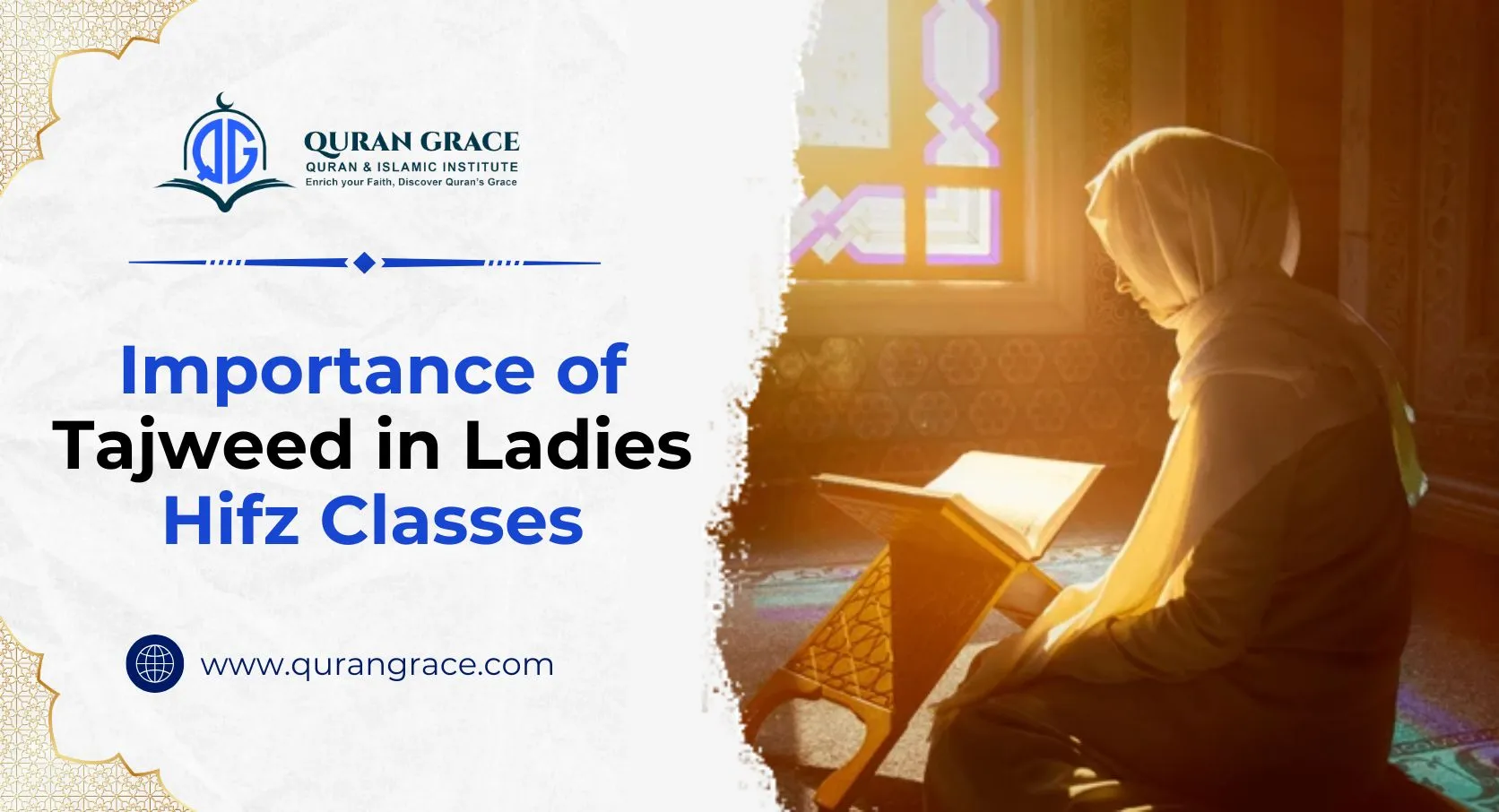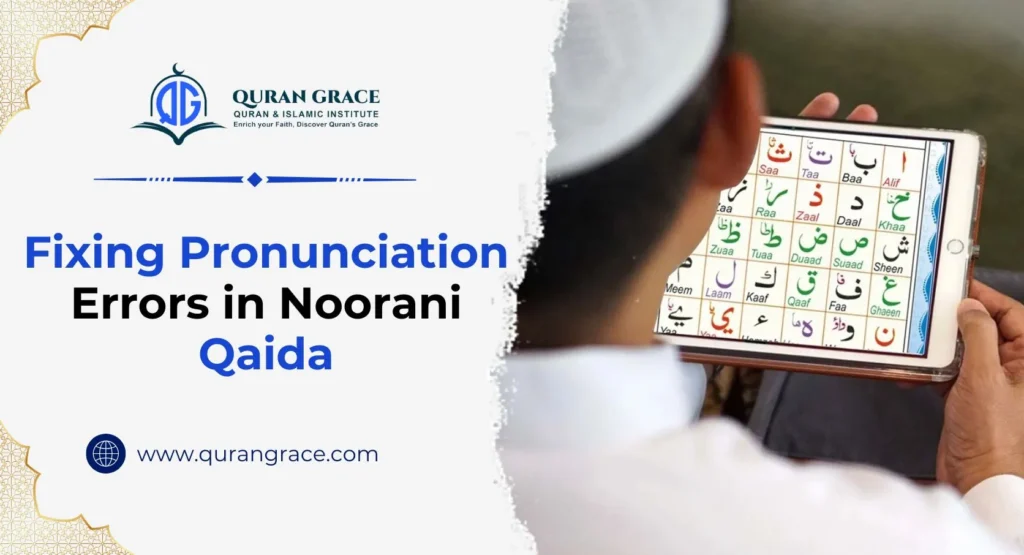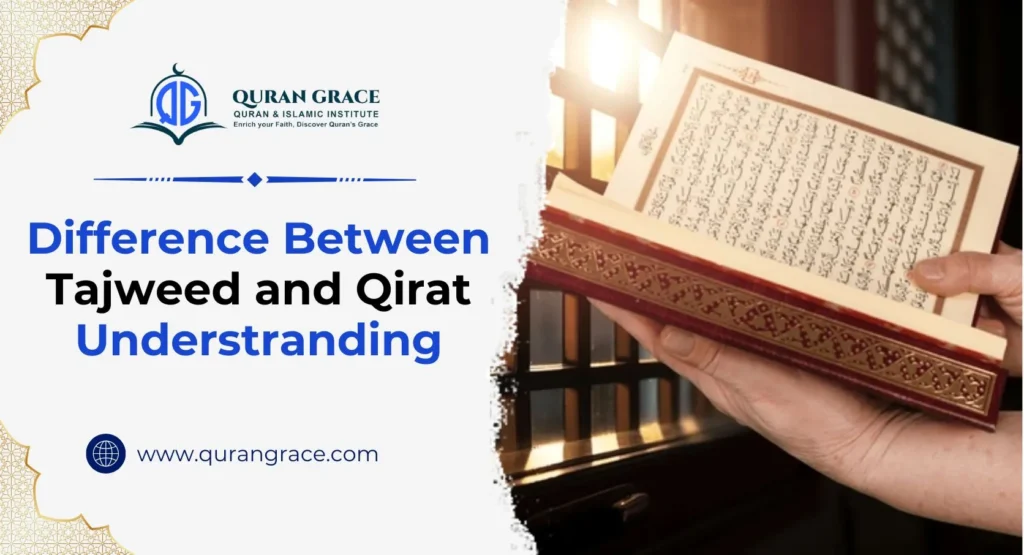Learning the Quran is a meaningful journey, particularly for many Muslim women who strive to memorize it. While the primary objective is to commit the text to memory, achieving accuracy in this memorization is equally vital. This is where Tajweed, the rules governing the proper pronunciation and recitation of the Quran, becomes essential, especially in a dedicated hifz course for women.
Table of Contents
ToggleWhat is Tajweed?
Tajweed literally means “improvement” or “to make something good.” In the context of the Quran, it refers to the set of rules that govern the correct pronunciation of the Arabic letters and words. It’s the art and science of reciting the Quran properly, with all its unique nuances. Think of it as the grammar and phonetics of Quranic recitation. It includes rules for things like:
- Makharij al-Huruf (Points of Articulation): The exact place in the mouth, throat, or nose where each letter is pronounced.
- Sifat al-Huruf (Qualities of Letters): The characteristics of each letter, such as whether it’s heavy or light, strong or weak.
- Rules of Noon Sakinah and Tanween: Specific rules for the letter noon and its associated diacritics.
- Rules of Madd (Elongation): How and when to stretch certain sounds.
Why is Tajweed So Important for Hifz?
For a Hifz student, getting the words right is only half the battle. Reciting them correctly is the other half. Here’s why Tajweed is non-negotiable in hifz classes:
- Preserving the Meaning: The Arabic language is incredibly precise. A slight mispronunciation can completely change the meaning of a word. For example, confusing a “h” (ه) with a “kh” (خ) can alter the entire meaning of a verse. Tajweed ensures that the student is reciting exactly what was revealed, preserving the integrity of Allah’s words.
- Spiritual Reward: The Prophet Muhammad (peace be upon him) said that a person who recites the Quran beautifully and proficiently with Tajweed is with the noble and obedient angels. Learning and applying Tajweed isn’t just an academic exercise; it’s an act of worship that enhances the spiritual reward for every letter recited.
- Aids in Memorization: When you understand the flow and rhythm of the Quran through Tajweed, it actually makes memorizing easier. The rules of Madd and Ghunna (nasal sounds), for example, create a rhythmic pattern that helps the words stick in your mind. It’s like learning the tune to a song—it makes the lyrics much easier to recall.
- Confidence in Recitation: Knowing Tajweed gives a student the confidence to recite in front of others, whether it’s their teacher, family, or in prayer. It removes the anxiety of making a mistake and allows them to focus on the spiritual and emotional connection to the verses.
The Ladies-Only Advantage
In a ladies-only Hifz class, students typically feel more comfortable and open. This supportive environment is ideal for focusing on the intricate details of Tajweed without the worry of feeling self-conscious. Female teachers can provide a nurturing and understanding approach, which is particularly beneficial when mastering challenging pronunciations. They can allocate extra time to individual students, correcting subtle errors that might be overlooked in mixed-gender or larger classes.
Conclusion
The emphasis on Tajweed in our ladies’ Hifz classes aims to cultivate not only memorizers of the Quran but also skilled reciters who approach the words of Allah with reverence and precision. This focus enhances their understanding and appreciation of the Quran, ensuring that each recitation is performed with care and respect. If you want to learn Tajweed rules alongside Hifz, consider joining Quran Grace online quran classes for females, where the primary emphasis is on Tajweed. Enjoy a free evaluation today and start your journey right away!








